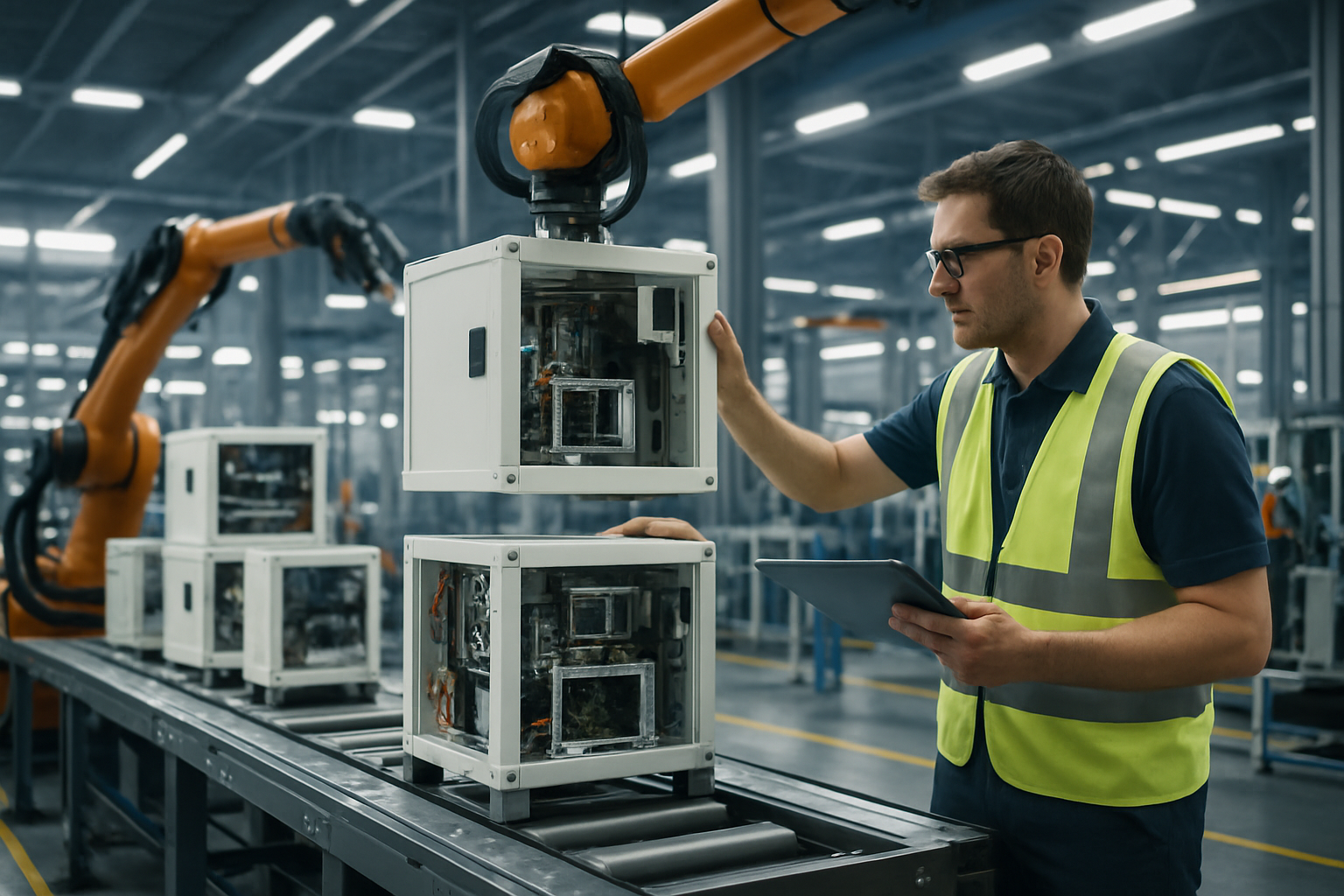Adaptive Production Systems: Revolutionizing Industrial Flexibility
In today's fast-paced industrial landscape, manufacturers face unprecedented challenges in meeting diverse customer demands while maintaining operational efficiency. Adaptive Production Systems (APS) have emerged as a game-changing solution, offering unparalleled flexibility and responsiveness in manufacturing processes. This innovative approach reshapes traditional production models, enabling businesses to swiftly adapt to market fluctuations and customize output with minimal disruption.

Core Components of APS
At the heart of Adaptive Production Systems lie several key components that work in harmony to achieve unprecedented flexibility:
-
Modular Equipment: Unlike traditional fixed machinery, APS utilizes modular units that can be quickly rearranged or replaced. This allows for rapid line reconfigurations to accommodate different product types or volumes.
-
Intelligent Control Systems: Advanced software and AI algorithms manage the production flow, optimizing processes in real-time based on current demands and resource availability.
-
Data-Driven Decision Making: Extensive data collection and analysis enable predictive maintenance, quality control, and continuous process improvement.
-
Flexible Workforce: Employees in APS environments are cross-trained to handle multiple tasks, enhancing overall system adaptability.
-
Scalable Infrastructure: The physical and digital infrastructure supporting APS is designed for easy scaling, allowing manufacturers to expand or contract operations as needed.
Implementing APS: Challenges and Strategies
While the benefits of Adaptive Production Systems are clear, implementation can be complex. Manufacturers must overcome several hurdles:
-
Initial Investment: The upfront costs of modular equipment and advanced control systems can be substantial. However, long-term benefits often outweigh these initial expenses.
-
Cultural Shift: Moving from traditional manufacturing models to APS requires a significant change in organizational culture and mindset.
-
Technical Expertise: Maintaining and optimizing APS demands a highly skilled workforce familiar with both manufacturing processes and advanced technologies.
-
Integration with Existing Systems: Many manufacturers face challenges in integrating APS with legacy systems and processes.
To address these challenges, companies can adopt a phased approach, starting with pilot projects in specific production areas before full-scale implementation. Partnering with technology providers and investing in employee training are also crucial strategies for successful APS adoption.
Real-World Applications and Success Stories
Adaptive Production Systems have found applications across various industries, demonstrating their versatility and effectiveness:
-
Automotive Industry: A leading car manufacturer implemented APS in its assembly lines, reducing model changeover times by 60% and increasing overall production flexibility.
-
Consumer Electronics: A smartphone producer used APS to manage rapid product cycles and customization demands, cutting time-to-market for new models by 30%.
-
Pharmaceutical Manufacturing: APS enabled a pharmaceutical company to quickly switch between different drug formulations, significantly improving their ability to respond to market demands and regulatory changes.
-
Aerospace: An aircraft parts manufacturer leveraged APS to handle complex, low-volume production runs efficiently, reducing setup times and improving resource utilization.
Future Trends and Innovations in APS
As technology continues to evolve, so do the possibilities for Adaptive Production Systems:
-
Enhanced AI and Machine Learning: Future APS will leverage more sophisticated AI to predict market trends and automatically adjust production parameters.
-
Integration with Digital Twins: Virtual replicas of physical production systems will allow for more accurate simulations and optimizations.
-
Expanded Use of Augmented Reality: AR technology will enhance worker productivity and decision-making within APS environments.
-
Sustainable Manufacturing: APS will increasingly incorporate sustainability features, optimizing resource use and minimizing waste.
-
Collaborative Robotics: Advanced robots will work alongside human operators, further enhancing system flexibility and efficiency.
Key Strategies for Maximizing APS Benefits
• Invest in comprehensive employee training programs to build a versatile, tech-savvy workforce
• Develop strong partnerships with technology providers to stay at the forefront of APS innovations
• Implement robust data analytics to continuously refine and optimize production processes
• Foster a culture of agility and continuous improvement throughout the organization
• Regularly assess and update cybersecurity measures to protect the interconnected APS environment
In conclusion, Adaptive Production Systems represent a paradigm shift in manufacturing, offering unprecedented flexibility and efficiency. As industries continue to face rapid changes and unpredictable market demands, APS will play an increasingly crucial role in maintaining competitiveness and driving innovation. By embracing this technology and addressing implementation challenges head-on, manufacturers can position themselves at the forefront of the next industrial revolution, ready to meet the dynamic needs of tomorrow’s markets.





